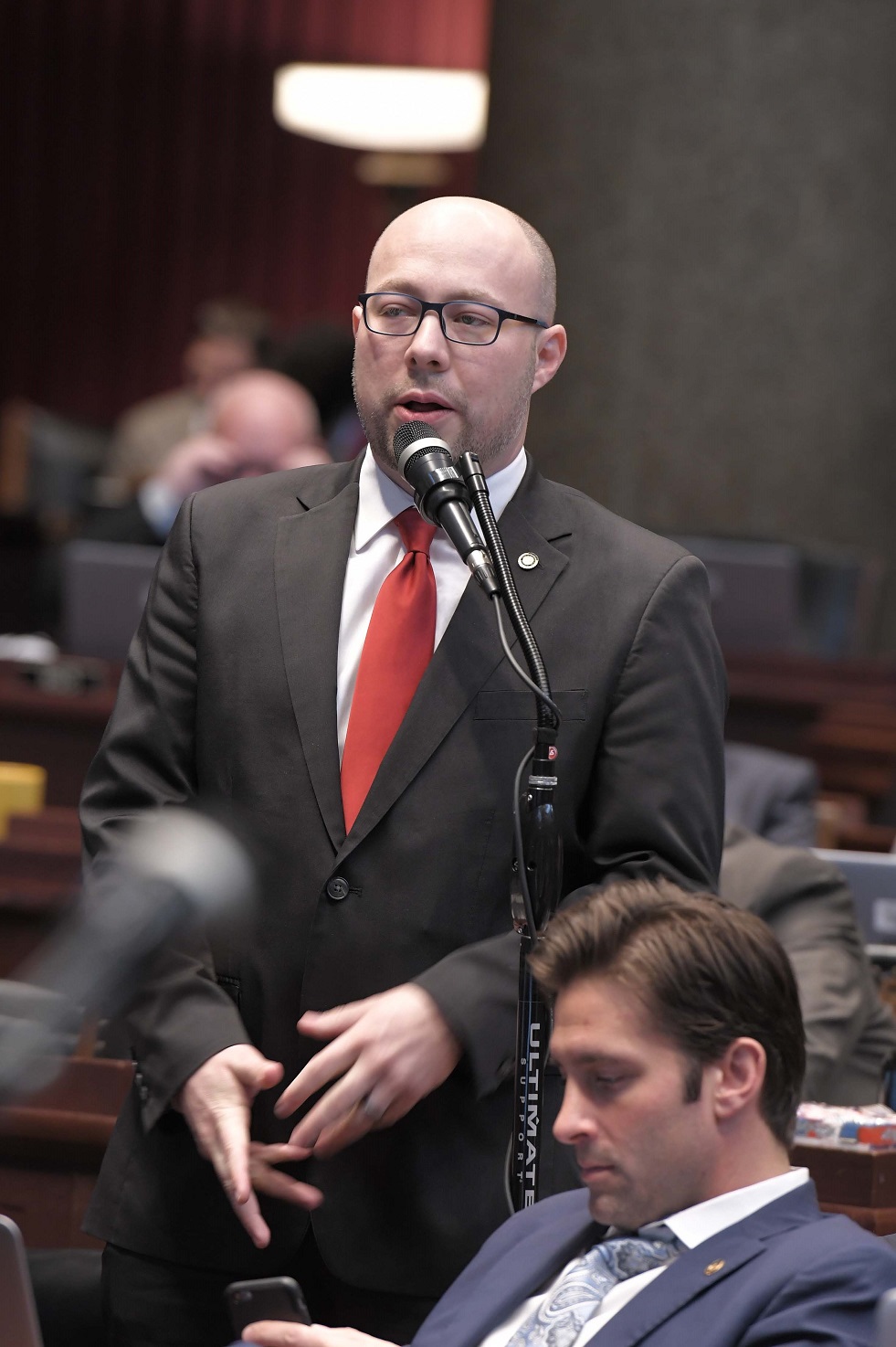The state House is being asked to consider giving judges more flexibility about when to impose minimum sentences mandated by Missouri law for many offenses.

House Bill 1739 would allow judges to depart from those mandatory minimums except regarding crimes that involved the use, attempted use, or threat of serious physical force, or certain non-consensual sex crimes against a minor. The case would have to involve “substantial and compelling” reasons that the minimum sentence would be unjust to the defendant, or would not be needed to protect the public.
It’s sponsored by Carthage Representative Cody Smith (R).
“HB 1739 would permit judges to adjust the length of a prison sentence to fit the crime and a person’s role in it. If someone played a very minor role in a nonviolent offense but still deserves some prison time, the judge could give the person a shorter sentence that is more appropriate for the severity of the crime,” said Smith.
Smith said one of the issues his bill would help address is overcrowding in Missouri’s prisons. It is predicted that Missouri is on pace to need to build two new prisons. The cost to the state to build and operate those is projected at $485-million over the next five years.
Many offenders in Missouri prisons are serving sentences stemming from nonviolent drug offenses. Smith said in such cases, easing mandatory minimum sentencing requirements could allow judges to instead require drug treatment and other programs in lieu of prison time. Smith said treatment outside of prison is typically more effective.
“It’s my understanding that drug treatment in prisons is largely unsuccessful and it’s much more successful outside of prisons through programs like drug courts. To have people working with drug courts or through their probation or parole while they can maintain a job, be with their family presumably, be productive citizens I think is much better than having them incarcerated and trying to do that through prison sentencing,” said Smith. “[Drug issues are] more of a health care problem at this point rather than a criminal justice issue, in my mind.”
Smith said more than 30 states have reduced, eliminated, or reformed mandatory minimum sentences and in those states crime rates have dropped. He thinks the changes to sentencing laws contributed to those drops.
“Once you have a prison sentence you lose your job, often times you lose your family, you are unable to maintain whatever positive momentum you have going in your life. I can see how you would very easily turn back to crime or drugs when you get out of prison, or do something in prison that would keep you there for a longer time,” said Smith. “If you can maintain some semblance of a normal lifestyle – again with your family, with a job, and work with something like a drug court – then you have incentive to turn your life around, and that’s been the case in those states.”
The projected fiscal impact of HB 1739 says it could save Missouri more than $3.1-million once fully implemented. Smith notes that does not include how much the state could save if it is able to avoid building and operating any new prisons.
The bill has been approved by the House Committee on Crime Prevention and Public Safety. It faces another committee, which could vote whether to send it to the full house for consideration.